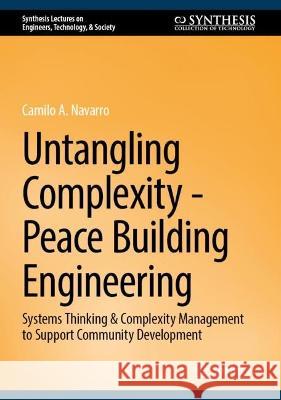Untangling Complexity—Peace Building Engineering » książka
topmenu
Untangling Complexity—Peace Building Engineering
ISBN-13: 9783031370373 / Angielski / Twarda / 2023
Untangling Complexity—Peace Building Engineering
ISBN-13: 9783031370373 / Angielski / Twarda / 2023
cena 181,55
(netto: 172,90 VAT: 5%)
Najniższa cena z 30 dni: 154,18
(netto: 172,90 VAT: 5%)
Najniższa cena z 30 dni: 154,18
Termin realizacji zamówienia:
ok. 16-18 dni roboczych.
ok. 16-18 dni roboczych.
Darmowa dostawa!
This book examines how the rapid acceleration and interconnection of globalization comes with the need for more flexible and adaptable solutions to complex problems and solutions. It describes and demonstrates possible combinations of methods and methodologies to address the complex problems that the world offers us today. Sharing meaningful experiences of the application of workshops in mixed public private companies and with vulnerable communities and peacebuilding communities.
The text offers readers, who are looking for tools to face complexity and enhance their projects, real-world examples and accessible methods. The book is based on advanced engineering tools however it is understandable and accessible to a broad audience.











